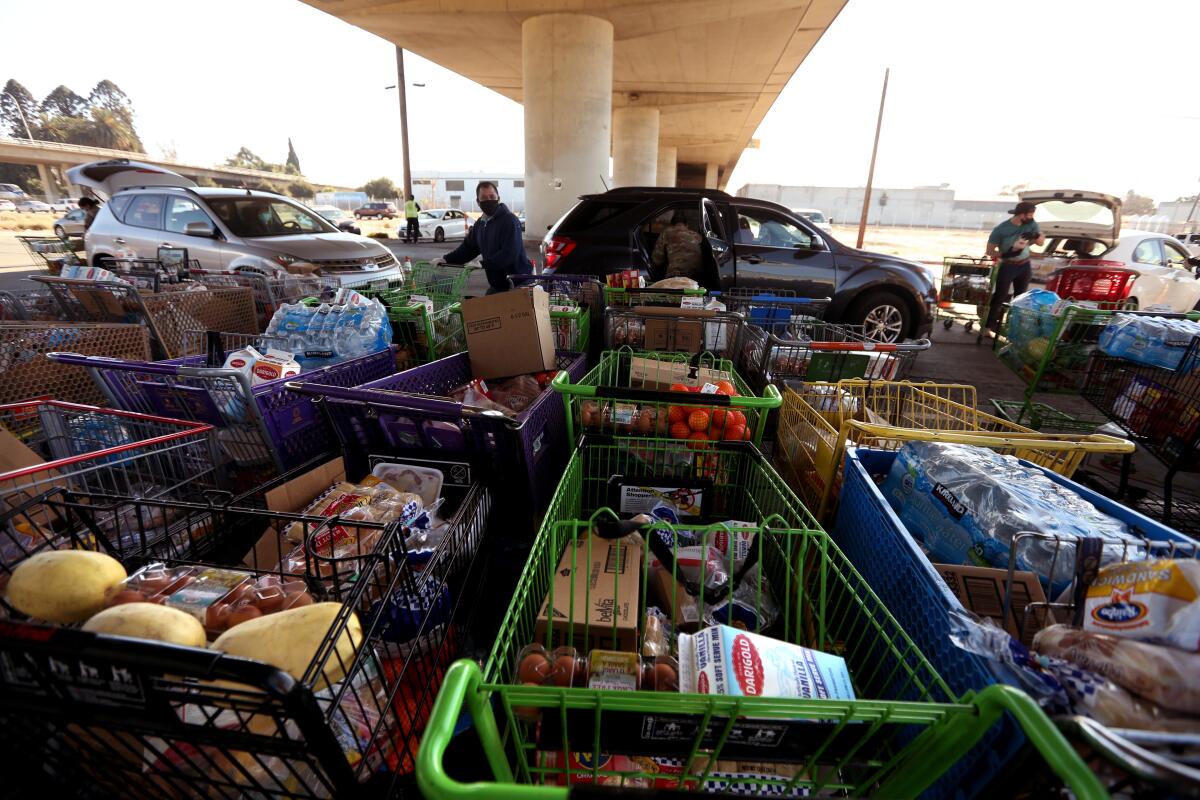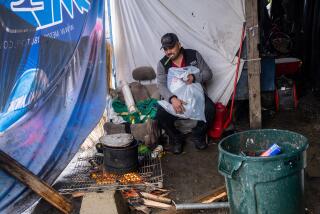Op-Ed: What even a modest guaranteed income might have done for my mom

- Share via
At 53 years old, my mom began studying for the GED. She had enrolled in GED courses twice before, but dropped out because there just weren’t enough hours in the day to juggle school, work, three daughters and a disabled husband. This time, however, was going to be different. In her own words: “I’m not stopping. I want to prove to myself that I can do this, even if I reach retirement age before I finish.”
After 25 years working multiple minimum-wage jobs to make ends meet, my mom was determined to break the cycle of economic insecurity and find a job with benefits. Since coming to the United States from Punjab, India, in 1995, my mom had been a gas station clerk, a Subway cashier and a house cleaner; in her “free time,” she was an unpaid caretaker for my dad.
The trauma of poverty was etched in her life in small ways and big. She battled high blood pressure and arthritis; she suffered depression and anxiety, her mind perpetually racing because we didn’t have the savings to weather an emergency.
My mom’s GED dream never came true — she passed away unexpectedly in June. But she might have had a better shot earlier in her life had she received a small financial assist to give her enough stability to seek a better future.
The two-year guaranteed income experiment in Stockton shows what a difference monthly cash payments can make for people struggling to stay afloat — people like my mom. Begun in February 2019, the Stockton Economic Empowerment Demonstration (SEED), the nation’s first such mayor-led project, paid $500 per month for 24 months to 125 randomly selected residents living in neighborhoods that are at or below Stockton’s median household income. The cash was unconditional, with no strings attached and no work requirements.
New data from the first year of SEED show that the effects were profound. The payments made recipients more financially stable, with reduced fluctuations in monthly household income. The guaranteed income also enabled them to make payments on their debt and provided more liquidity to pay for unexpected expenses. The recipients were also healthier and happier. Financial stability alleviated anxiety and depression, and they experienced statistically significant improvements in emotional health, energy levels and emotional well-being.
These results reflect the outcomes in other guaranteed income projects. A three-year experiment in Manitoba, Canada, saw an 8.5% decrease in hospitalizations for mental health, accidents and injuries. In Finland’s guaranteed income experiment, recipients reported a 37% decrease in depression levels and a 22% improvement in confidence for the future, as compared with the control group.
And contrary to the popular criticism that giving people money will reduce the incentive to work, employment data from SEED shows that recipients pursued and were able to find full-time work. Recipients found full-time employment at more than twice the rate of those in the control group. In February 2019, 28% of recipients had full-time employment. One year later, 40% of recipients were employed full time.
Why? Because an income floor of just $500 a month gave recipients the emotional and financial capacity for risk-taking. A growing body of research suggests that poverty fundamentally changes one’s brain, activating a person’s fight-or-flight response. Typically, the response is triggered by a frightening or dangerous event; when the event is over, the stress response switches off.
For those experiencing chronic poverty or economic insecurity, the switch stays on, overloading one’s ability to set goals, solve problems or complete tasks. When brain capacity is used worrying about how to keep the lights on, make rent or feed one’s family, there’s simply no bandwidth for anything else.
SEED alleviated some of this stress, offering the breathing room needed to plan for the future. Take for example Tomas, a SEED recipient who started the program working multiple unstable jobs to provide for his family. The $500 allowed him to take time off of work to interview for a better position, and he now has a full-time job as a youth mentor at a local nonprofit. Or Zohna, who shifted from participating in the gig economy as a DoorDash driver to gaining full-time employment at Tesla.
At first glance, many of these findings feel intuitive. Who wouldn’t be less stressed and anxious with more money? Yet, somehow, policy choices in this country defy this simple logic. Instead, government policies penalize poverty and codify the false narrative that people are poor because of their own bad choices and moral shortcomings. The public benefits system has been gutted even as corporations and the wealthy are given enormous tax giveaways. This is not a coincidence.
My mom was the hardest worker I’ve ever known, and she did not deserve to be poor. No one does. A guaranteed income gives people the mental, physical and economic benefits that come with a basic level of financial security — including the ability to go back to school and invest in the future. We need to summon the political will to make this reality.
Sukhi Samra is director of the Stockton Economic Empowerment Demonstration project and the director of Mayors for a Guaranteed Income.
More to Read
A cure for the common opinion
Get thought-provoking perspectives with our weekly newsletter.
You may occasionally receive promotional content from the Los Angeles Times.










